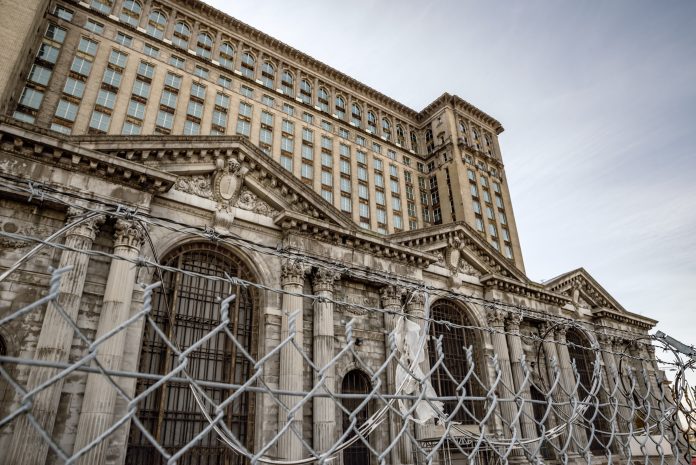Ford Motor Company has revitalized the iconic but long-abandoned Michigan Central Station in Detroit, transforming it into a state-of-the-art technology campus. This $950 million project encompasses the 18-story train station, an adjacent 270,000-square-foot building, and additional facilities. The newly named “Michigan Central” campus is poised to become a hub for innovation and talent.
Ford’s ambitious project, initially announced in 2018 and delayed due to the pandemic, will officially reopen on Thursday with public access to the train station’s ground floor until June 16. The first commercial occupants will begin moving in this fall. The campus, located in Detroit’s Corktown neighborhood, spans 30 acres and includes retail, restaurants, and hospitality spaces.
The reopening comes at a challenging time for Ford as it restructures its business amid broader trends of companies downsizing office spaces due to the pandemic. In contrast, rival General Motors recently downsized its Detroit headquarters. Despite these challenges, Ford Chair Bill Ford Jr. emphasizes the strategic importance of this investment for attracting and retaining top talent.
“We’re in a war for talent, our industry, and our company,” Bill Ford stated. He continued, “You need to give talent interesting problems to solve and a great place to work. With Michigan Central, we checked both those boxes.”
Bill Ford’s vision for the station, influenced by his experiences in Silicon Valley and on the board of eBay, reflects his commitment to positioning Ford as a competitor against tech companies. The campus is expected to house at least 2,500 employees, primarily from Ford’s electric vehicle and connected services teams, with about 1,000 moving into the station’s tower by the end of the year.
Restoration of the station, a symbol of Detroit’s resurgence, was meticulous. Ford officials went to great lengths to match materials and reference historical photos, even reopening a closed quarry in Indiana to source the original limestone. Some graffiti has been preserved to represent the station’s dormant years since its closure in 1988.
The Michigan Central campus has already attracted significant interest, with two-thirds of the space leased or designated for specific uses. This includes a pending restaurant and hotel, as well as the Detroit Public Schools Book Depository, which now hosts over 600 employees from nearly 100 startups. Google, a founding partner, runs its “Code Next” program from this building, teaching students to code.
Bill Ford’s latest project builds on his legacy of transformative initiatives in Detroit, including relocating the Detroit Lions to downtown Ford Field and redeveloping the River Rouge Assembly plant into a “green” production facility. He views Michigan Central as a continuation of these efforts, aiming to create a vibrant ecosystem for innovation and public engagement.
“I’m very proud of those [prior projects], but I think this is going to kind of put an exclamation point on it because this will be a wonderful place to work, but it will also be a wonderful place for the public to come,” Ford said.





